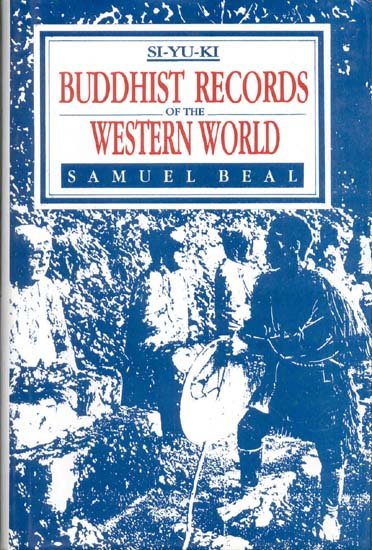Buddhist records of the Western world (Xuanzang)
by Samuel Beal | 1884 | 224,928 words | ISBN-10: 8120811070
This is the English translation of the travel records of Xuanzang (or, Hiuen Tsiang): a Chinese Buddhist monk who traveled to India during the seventh century. This book recounts his documents his visit to India and neighboring countries, and reflects the condition of those countries during his time, including temples, culture, traditions and fest...
Chapter 23 - Country of Fa-la-na (Varana or Varnu)
Note: Pāṇini has a country called Varṇu (iv. 2, 103; iv. 3, 93), from a river of the same name, in the group Suvāstavādi; also in the group Kachchhādi, in which Gāndhāra also is included.
This kingdom is about 4000 li in circuit, and the chief town about 20 li. The population is dense. The kingdom is subject to Kapiśa. The chief portion of the country consists of mountains and forests. It is regularly cultivated. The climate is rather cold. The manners of the people are rough and fierce. They are persevering in their habits, but their purposes are low. Their language is somewhat like that of Mid-India. Some of them believe in Buddha, others not. They do not care about literature or the arts. There are some tens of saṅghārāmas, but they are in ruins. There are about 300 priests, who study the Great Vehicle. There are about five Deva temples, frequented mostly by Pāśupata heretics.
Not far to the south of the city is an old saṅghārāma. Here Tathāgata in old days preached, exhibiting the profit and delight of his doctrine, and opening the mind of his hearers. By the side of it are traces where the four past Buddhas sat down or walked for exercise. The common report says on the western frontier of this country is the kingdom of Ki-kiang-na (Kikaṇa?). The people live amid the great mountains and valleys in separate clans. They have no chief ruler. They breed an immense quantity of sheep and horses. The shen horses are of a large size, and the countries around breed but few, and therefore they are highly valued.
Leaving this country and going north-west, after traversing great mountains and crossing wide valleys, and passing a succession of smaller towns, and going 2000 li or so, we leave the frontiers of India and come to the kingdom of Tsau-ku-cha.
